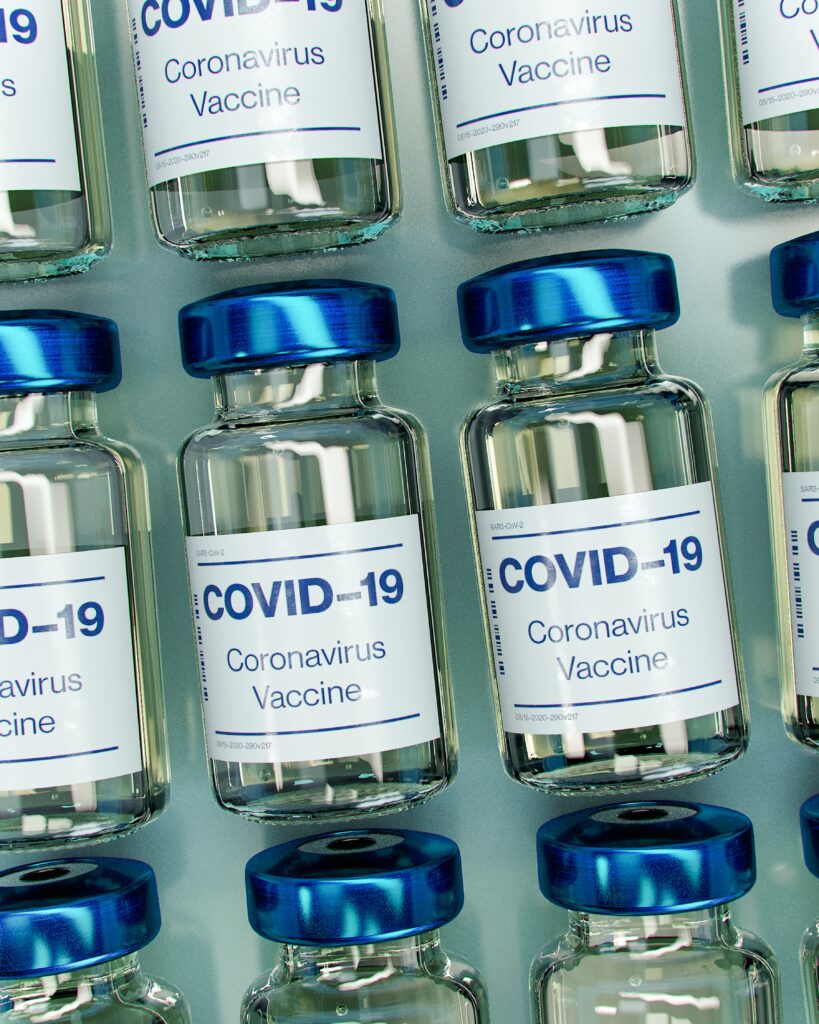We all have been impacted by the coronavirus. After months of what seems like only bad news, just before the new year, two vaccines became available that are effective at preventing infection and the complications of infection including hospitalization and death. Since these are new vaccines for a relatively new virus, there are many questions you might have. Below is some information we hope will help.

The Goal of the Vaccine: Develop Strong Immunity
When we are infected by a pathogen (a bacteria or virus), our body is exposed to its foreign proteins. In response, our immune systems will develop antibodies to one or more of the foreign proteins from the pathogen. Once circulating through the body, these antibodies will bind directly to the viral proteins. Then, your white blood cells will ingest the antibodies and the attached virus, and destroy it.
Similarly, a vaccine produces immunity by exposing your body to one or more of the foreign proteins that are unique to the pathogen, producing antibodies and immunity without having to experience an infection. Subsequently, if you are exposed to the pathogen, you will already have the antibodies necessary to fight back, either preventing you from becoming infected at all or reducing the severity of illness if you do become infected.
A Vaccine Takes Some Time To Work
After receiving the vaccine, it may take your body a few weeks to develop a strong supply of antibodies. The currently available vaccines (Pfizer and Moderna) prevent about 75% of people from becoming infected after 2 weeks following the first dose and prevent about 95% of people from getting infected after 2 weeks following the second dose.
Therefore, if you are exposed to coronavirus in the days after you get vaccinated, you may still become infected. Furthermore, even after antibodies have been given time to develop, there is a small chance of becoming infected.
This is why, even after receiving the vaccine, it is still important to follow all of the necessary healthcare precautions, including wearing an effective mask, washing your hands, and remaining socially distant when you can.
Testing Positive After the Coronavirus Vaccine
There are two categories of COVID testing, those that test for active infection, which detects the actual virus in your body by swabbing your nose or throat, and those that test for prior infection, which tests for antibodies to the virus in your blood.
Since the vaccine causes your body to generate antibodies, an antibody test on your blood may be positive after receiving the vaccine even if you aren’t currently infected. However, having had the vaccine will not cause a positive test for active infection on a nasal swab or throat swab.
Since the vaccine is not 100% effective at preventing infection, a positive test for active infection, even after being vaccinated, should be considered reliable and you should isolate and discuss your positive test with your doctor.
New Strains of the Coronavirus
Unfortunately, new strains of coronavirus-19 are emerging. Remember that the vaccine was designed to protect people against the original strain of coronavirus and may not be as effective against new strains of coronavirus. This is another reason it is crucial to prevent as many infections as possible since each infection creates an additional opportunity for the virus to mutate.
Thankfully, current research indicates that the currently available vaccines remain at least mostly effective at preventing infection from currently known variants. But it is quite possible that a new strain will develop against which our current vaccines are not effective.
Rely on CapRock Health for Your Healthcare Needs
If you have questions or concerns about the coronavirus vaccine, we are here to answer them. At CapRock Health System our goal is to get your keep you informed and provide you with access to the best medical providers in the region.

